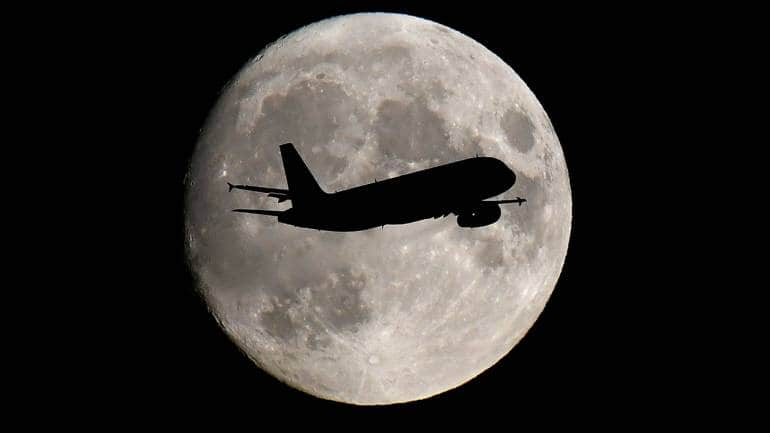Boiling crude prices, lower traffic may spell trouble for aviation sector in Q2, say analysts


On the other hand, Gaurang Shah, Senior Vice President at Geojit Financial Services asserts that the upcoming festive and holiday season could reverse muted passenger traffic trends going ahead.
The double whammy of the recent rally in crude oil prices and declining passenger traffic looms large over the aviation sector in the July-September quarter of fiscal year 2023-24 (Q2FY24), said analysts.
“Airline yields are witnessing a significant decline in Q2 as airfares have contracted 12 percent on a sequential basis. Moreover, the uptrend in crude prices is likely to result in marginally higher aviation turbine fuel (ATF) prices for airline companies in Q2,” wrote analysts at JM Financial in their recent note.
Also read: Aviation Minister inaugurates integrated office complex for aviation regulators
So far in Q2FY24, prices of Brent Crude have surged 20 percent to $94 per barrel, pushing average ATF prices up 6.8 percent from the previous quarter.
This, therefore, could impact aviation companies’ near-term profitability if they do not have the right pricing power mix, said AK Prabhakar, head of research at IDBI Capital. “If crude prices are high and demand is on the lower end, airfares need to be priced accordingly,” he added.
Earlier, on September 1, the PSU oil companies hiked jet fuel prices by 14 percent, raising the price to Rs 1.12 lakh per kilo litre in Delhi, highest in 9 months.
That apart, demand-wise, passenger traffic dropped 3 percent month-on-month (MoM) to 12.1 million in July, extending flat MoM traffic run rate so far in August as well due to the monsoon season.
Individually, the passenger load traffic (PLF) of Air India dropped 400 basis points (bps) MoM in July, while SpiceJet’s PLF declined 420 bps MoM, and Indigo’s PLF slumped 720 bps MoM, during the same period.
So far in August, too, all airlines, except SpiceJet, reported PLF below 90 percent.
Essentially, July was the weakest (in terms of load factors) over the past five years (excluding Covid-times), according to a report by Kotak Institutional Equities.
However, analysts at Kotak believe that the shift to international could limit pressure on yields, especially for Indigo, which dominates 63 percent of the domestic market share.
“The large and remunerative growth runway in international flights should imply higher spreads for airlines. Interglobe Aviation, which operates low-cost carrier Indigo, is well-placed internationally based on the success of its code-share and brand equity,” the brokerage firm added.
On the other hand, Gaurang Shah, Senior Vice President at Geojit Financial Services asserts that the upcoming festive and holiday season could reverse muted passenger traffic trends going ahead.
In the April-June quarter (Q1FY24), Interglobe Aviation’s yield per passenger fell to Rs 5.18 from Rs 5.24. The company’s total debt, meanwhile, rose 18 percent year-on-year (YoY) to Rs 46,291 crore.
For SpiceJet, passenger revenue per available seat kilometer (RASK) surged 26 percent in Q1FY24 led by a 22 percent rise in yield and a 4 percent load factor.
On the bourses, shares of Interglobe Aviation skid 2.2 percent in the past one month, while shares of SpiceJet jumped 22 percent after the low-cost carrier settled dues with Credit Suisse.
From an investment standpoint, Prabhakar of IDBI Capital suggested investors warrant caution on the overall sector in the near-term, and said that Interglobe Aviation could be a favourable bet if it corrects further down the line.
In Q2FY24 so far, shares of Interglobe Aviation have slipped 8.6 percent, whereas shares of SpiceJet jumped 41 percent. On Monday, September 18, Interglobe Aviation shut shop at Rs 2,399 apiece, up 0.3 percent, and SpiceJet at Rs 38 per share, down 1.3 percent.
Disclaimer: The views and investment tips expressed by experts on Moneycontrol.com are their own and not those of the website or its management. Moneycontrol.com advises users to check with certified experts before taking any investment decisions.










